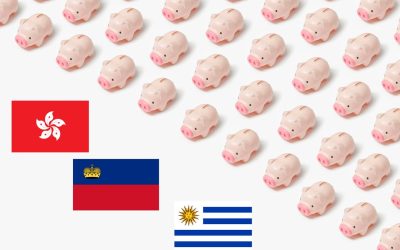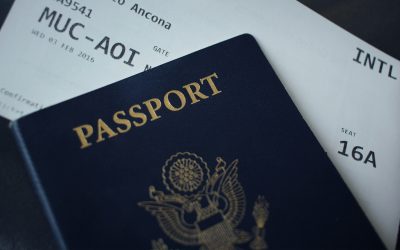Madeira, an autonomous region of Portugal, has gained significant attention recently as a premier destination for international businesses and high-net-worth individuals seeking the Madeira tax regime for its advantages and a favourable business environment. However, the tax regime of Madeira is often misunderstood, with many misconceptions surrounding its classification as a tax haven. In this comprehensive guide, we will debunk these myths and shed light on the tax benefits, substance requirements, and regulatory compliance offered by Madeira’s International Business Centre (MIBC) for global enterprises.
Understanding Madeira’s International Business Centre (MIBC)
Madeira’s MIBC is a legally defined structure that provides tax incentives approved by the European Union (EU) until at least the end of 2028. These incentives are primarily focused on promoting international activities and attracting foreign investment. It is crucial to note that MIBC companies are subject to the same rules, regulations, and reporting requirements as any other Portuguese company. They must maintain organized accounts and submit tax forms, VAT returns, and reports to the Bank of Portugal, ensuring full compliance with Portuguese and EU law.
Debunking the Myth of Madeira as a Tax Haven
Contrary to popular belief, Madeira is not a tax haven. MIBC companies only enjoy tax benefits on their international activities, while any income generated from domestic operations is taxed at the standard Portuguese corporate income tax rate. Madeira is not considered an offshore jurisdiction or a non-cooperative jurisdiction, as it is not included in any international blacklists. MIBC companies have access to all double tax treaties and European Directives signed by Portugal, further reinforcing their integration into the global financial system.
Substance Requirements for MIBC Companies
Companies must meet specific substance requirements to qualify for the tax benefits offered by the MIBC. These requirements are designed to ensure transparency, compliance, and economic substance. The primary focus is on job creation, where MIBC companies must hire at least six workers within the first six months of activity or invest €75,000 in tangible or intangible fixed assets during the first two years. Additionally, the company must have at least one employee on its payroll who will continuously pay Portuguese individual income tax and social security.
Tax Benefits of the MIBC
MIBC companies that fulfil the economic substance requirements can benefit from the following:
- Reduced Corporate Income Tax Rate – MIBC companies enjoy a reduced corporate income tax rate of 5% on their active income derived from trading activities or the provision of services.
- Exemption from Withholding Tax – MIBC companies are exempt from withholding tax on dividend distributions, provided certain conditions are met. The participation exemption regime also applies to capital gains received by the company, the sale of subsidiaries, and the payment of capital gains to shareholders.
- Exemption from Withholding Tax on Interest, Service Fees, and Royalties – MIBC companies are exempt from withholding tax on interest, service fees, and royalties paid to non-residents.
- Exemption from Stamp Duty and Property Taxes – MIBC companies are exempt from stamp duty, property tax, property transfer tax, and regional and municipal surcharges, subject to certain limitations.
- Access to Double Tax Treaties and Investment Protection Treaties – MIBC companies have access to the benefits provided by the double tax and investment protection treaties signed by Portugal.
Madeira’s Commitment to Compliance and EU Approval
All tax benefits granted to MIBC companies have been negotiated and pre-approved by the EU Commission. Madeira’s tax regime has been approved under the EU state aid rules, ensuring compliance with EU regulations that promote fair competition and prevent harmful tax practices. MIBC companies are subject to the same rights, obligations, and compliance requirements as any other Portuguese company, further solidifying Madeira’s commitment to transparency and responsible business practices.
Madeira’s Integration into the EU and OECD
Madeira’s status as an autonomous region of Portugal, an EU member state, and its membership in the OECD provide a strong foundation for its tax regime. Companies located in Madeira operate under a credible regime supported by the 28 EU member states. Madeira’s automatic VAT number allows companies direct access to the EU intra-community market, and all EU directives apply to the region, ensuring a well-regulated and modern legal system that protects investors’ interests.
Madeira’s Approval and Extension of the IV Regime
Madeira’s IV Regime, which provides tax benefits to companies in the MIBC, has been approved and extended by the EU Commission until December 31, 2027. This demonstrates the EU’s confidence in Madeira’s tax regime and its commitment to maintaining most tax benefits. The IV Regime also introduces additional dividend benefits, further enhancing Madeira’s attractiveness to international businesses.
Madeira Tax Regime: The Advantages of Establishing a Presence
In addition to the favourable tax regime, Madeira offers several advantages for businesses and individuals:
- Low Operating Costs – Madeira boasts lower operating costs than other European jurisdictions, making it an attractive location for international companies.
- Qualified Labor Force – Madeira has a skilled and multilingual workforce, providing access to a talented pool of professionals.
- Political and Social Stability – Madeira enjoys a stable political and social environment, offering a secure and reliable business climate.
- Natural Beauty and Quality of Life – Madeira is renowned for its stunning natural landscapes, mild climate, and high quality of life, making it an appealing destination for both businesses and individuals.
Madeira’s Suitability for Different Business Entities
Madeira’s tax regime and business environment cater to a diverse range of business entities, including:
- Private Limited Companies (LDA) – The LDA (Sociedad por Quotas) is the most common type of entity in Madeira, with its capital divided into “quotas” (at least €1 each) and the flexibility to have a single shareholder.
- Joint Stock Companies (SA) – The SA (Sociedade Anónima) suits larger businesses. It has a minimum authorized capital of €50,000 (of which at least 30% must be paid at registration) and a minimum of five shareholders.
- Holding Companies (SGPS) – Madeira’s tax regime provides attractive benefits for holding companies, which can be formed by a single foreign shareholder with a minimum capital of €1.
- Branches of Foreign Companies – Establishing a branch of a foreign company in Madeira is a straightforward and cost-effective option for international businesses looking to expand their operations.
Our Conclusion about the Madeira tax regime
Madeira’s International Business Centre is not a tax haven but a well-regulated and EU-approved tax regime offering numerous benefits for international businesses and individuals. By understanding the substance requirements, compliance measures, and tax advantages, global enterprises can leverage Madeira as an attractive platform for their operations, tapping into the region’s skilled workforce, stable political environment, and high quality of life. As the Madeira tax regime continues to evolve and receive the EU’s endorsement and audit, it solidifies its position as a premier destination for businesses seeking a competitive edge in the global market.
The founding of Madeira Corporate Services dates back to 1996. MCS started as a corporate service provider in the Madeira International Business Center and rapidly became a leading management company… Read more




